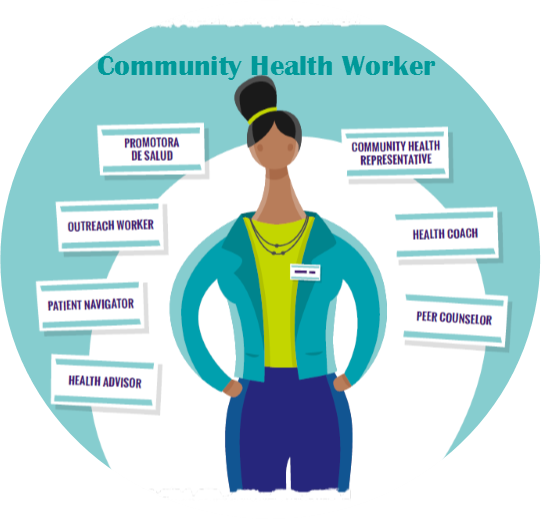Written by Ruhi Nath (she/her/hers)
In honor of National Public Health Week 2022

Embracing patient-centered care and community power is the future of healthcare in the United States. Community health workers across the country and right here in Massachusetts have been doing just that for decades.
While the title “community health worker” (CHW) was only formally recognized by the American Public Health Association in 2000, the unique work and contributions CHWs bring, particularly to underserved communities of color, is unmatched. As frontline public health workers who are typically locals of the neighborhoods they serve, they provide an element of trust, credibility and a bridge to traditional healthcare structures that have often been severely damaged through repeated unjust experiences.
Despite being essential to the state’s healthcare system, reducing barriers to preventive care and providing highly effective, culturally competent, accessible care to patients, CHWs still remain largely unrecognized, underpaid, and undervalued. The Massachusetts Association of Community Health Workers (MACHW) aims to change that.

Data collected over a decade ago in Massachusetts showed over half of CHWs were themselves ethnic or racial minorities and 58% were bilingual or multi-lingual. From the same Department of Public Health survey, we know that there are at least 3,000 CHWs in the Massachusetts work force, the majority of whom identify as women. However, without more recent data collection efforts, we are unable to track how the volume and diversity of CHWs has evolved in Massachusetts over the past decade. In order to assess the health of our communities, it is critical to have an understanding of those who serve them. Not only through race and ethnicity, but through gender identity, years of experience, and more. Collecting accurate data about the CHW work force is an important step towards health equity. One of MACHW’s current projects is collaborating with the National Association of Community Health Workers to collect accurate data from CHWs across the country.
Just as CHWs provide community level capacity building through health education, informal counseling and advocacy efforts, MACHW serves CHWs by building their individual professional capacity. We provide training opportunities, collaborate with peer organizations and government entities to advocate for and support the needs of CHWs. Above all, we always center the voice of CHWs. Similar to the role of CHWs in the community, to support patients and be a tireless champion of their needs, MACHW serves to amplify the needs of CHWs. Community based healthcare is the future of healthcare, and we are committed to doing everything we can to make it a sustainable future.
Learn more about MACHW here!
References:
- https://www.apha.org/apha-communities/member-sections/community-health-workers/who-we-are
- https://www.mass.gov/community-health-workers/resources
- Report: Community Health Workers in Massachusetts: Improving Health Care and Public Health (2009)
- White paper: Achieving the Triple Aim: Success with Community Health Workers (2015)
- Data Brief: Characterizing Massachusetts Workers in Select COVID-19 Essential Services: Healthcare (2021)